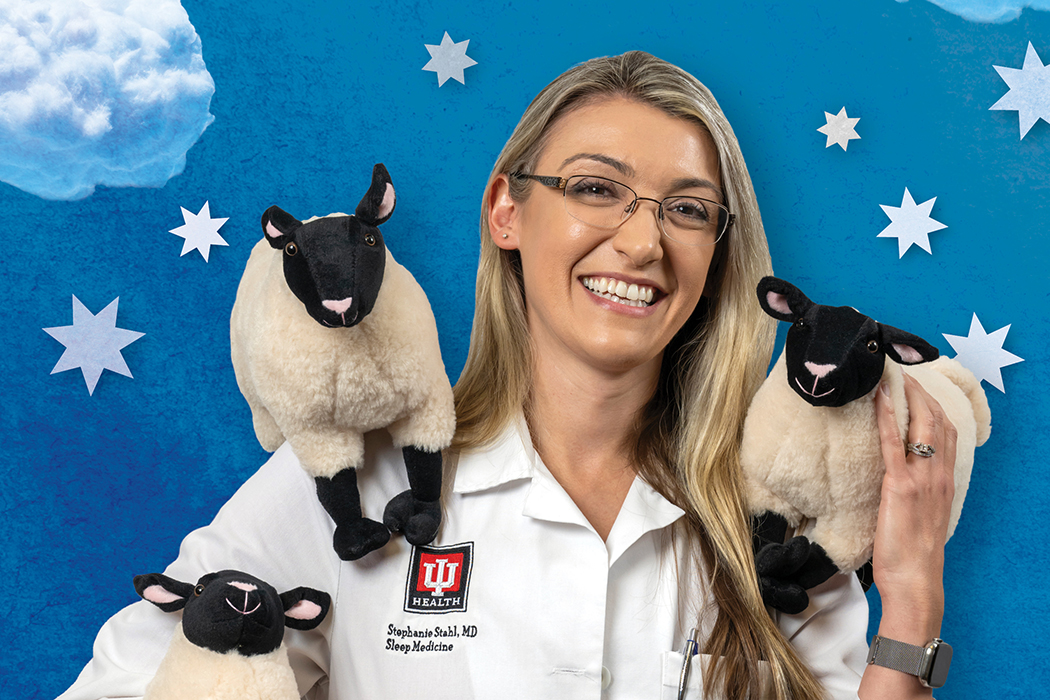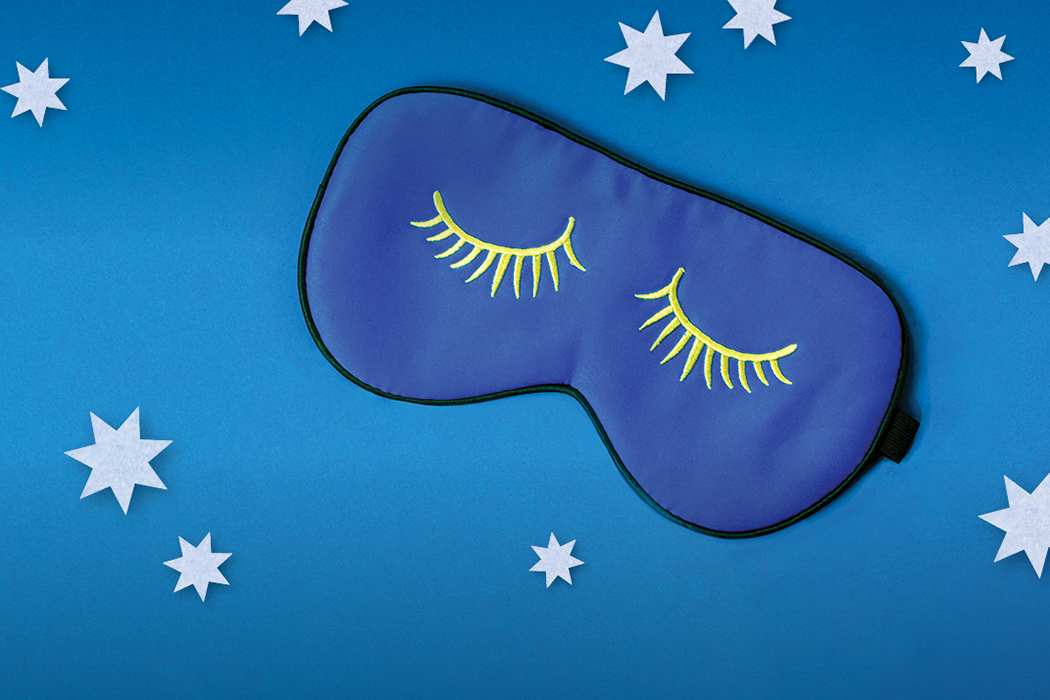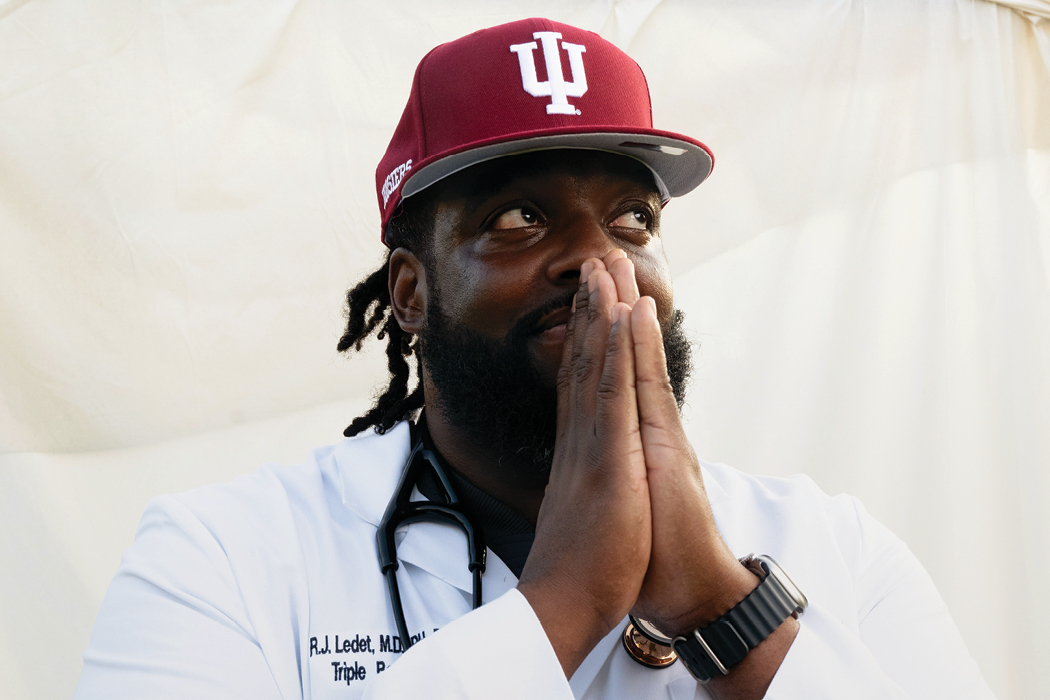Improving Children’s Health, One Game at a Time
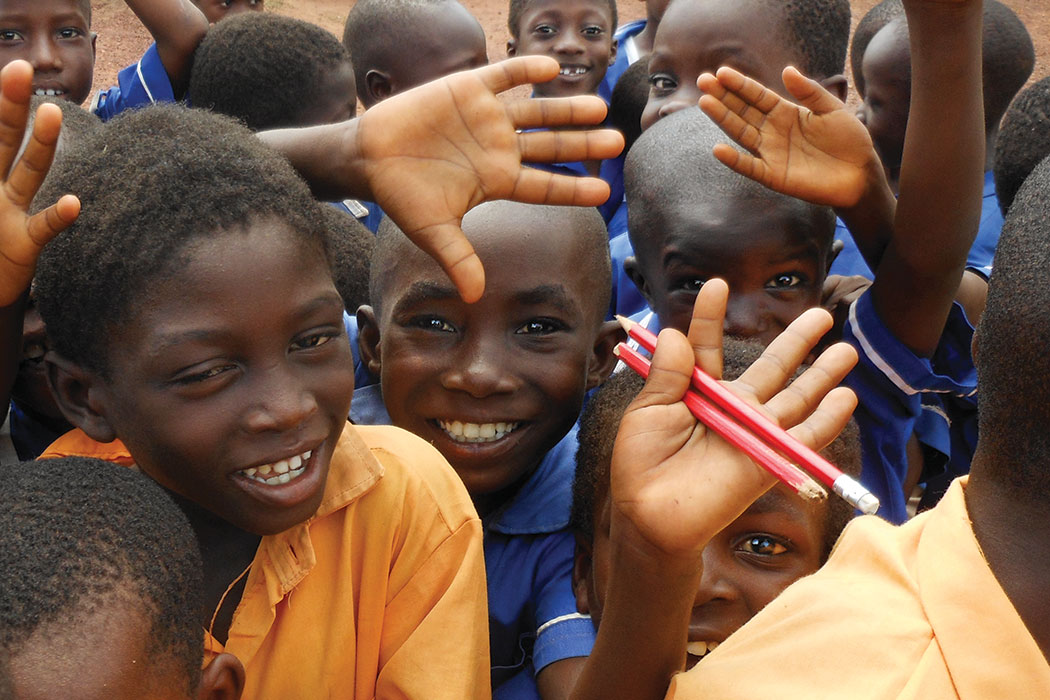
Typically, the children play soccer on packed dirt, not grass. And the balls are sometimes rags taped together. Sometimes, they’re just tape.
Those were some of the conditions that Sarah Young saw when she visited the country of Ghana in 2013. Young is an IU School of Public Health Bloomington professor who has a special interest in youth sports and community health issues. She and a team of colleagues saw a special opportunity to improve health outcomes in Ghanaian children.
Like other African nations, Ghana struggles with the spread of HIV and sexually transmitted diseases. In addition, teen pregnancy rates are reaching all-time highs. Other health concerns include the rates of alcohol, tobacco, and inhalant abuse among Ghana’s young people.
To counter these trends, Young and her fellow researchers created Youth Enrichment through Sports Ghana (YES Ghana). But the program does far more than bring athletic equipment to schoolyards. It connects children with someone who has the power and opportunity to improve a young person’s life forever: a coach.
Great Coaches = Great Mentors
For most of us, the idea seems simple. We can easily rattle off a list of ways in which kids can benefit from sports: improved fitness, increased confidence, healthier habits, and greater cooperation skills, to name just a few.
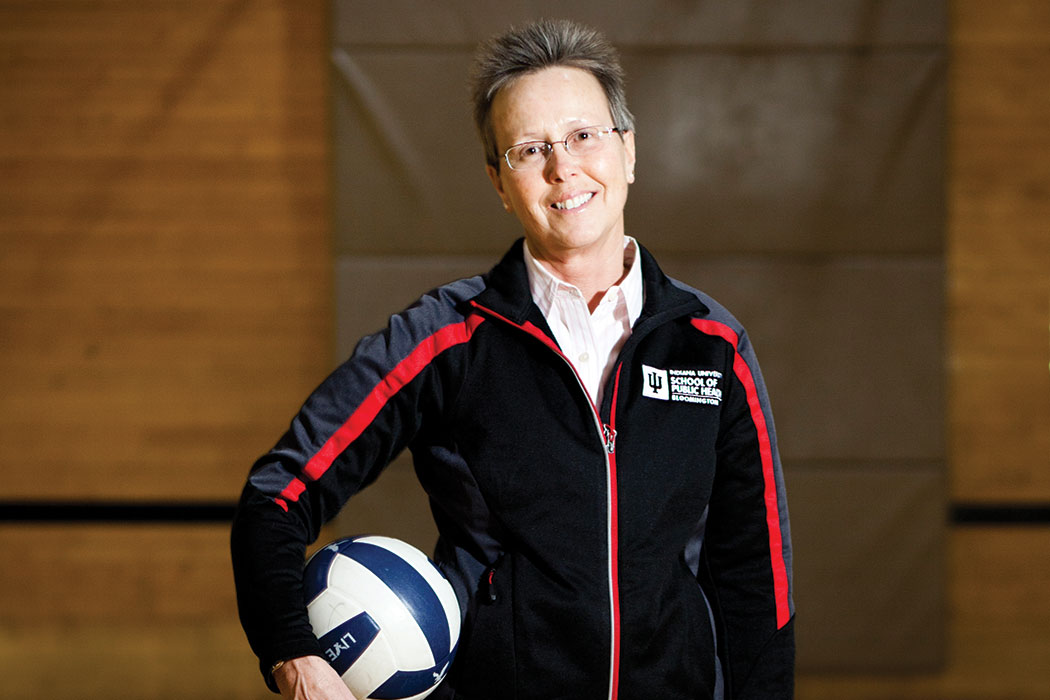
But for Charles Obimpeh, a 27-year-old sports coach and educator in Cape Coast, the concept of using recreational sports for long-term health- and life-coaching was eye-opening. “I teach kids sports every day,” he says. “It never occurred to me to use sports to teach life lessons and skills.”
Obimpeh was one of 16 Ghanaian coaches who came to Bloomington for a two-week training program led by Young and her colleagues. Classwork included the theory and practice of recreational sports, lectures on substance abuse and sexual health, and workshops on designing developmental games.
According to Young, the sexual health sessions were particularly lively, with the participants asking the sorts of questions they knew Ghanaian youth would ask when they returned. “There’s a pervasive myth in Ghana and elsewhere in Africa that having sex with a virgin can cure AIDS,” Young says.
“Our participants already knew that’s not true, but they were glad to get research-based answers they can use to educate kids.”
Keeping the Ball Rolling
After almost a year of implementing the program, the coaches can report that YES Ghana works. “The children are benefiting a lot,” notes Paul Kobina Nkrumah, who coaches at a school in the town of Abakam. “You have to understand that here—we don’t have a lot of support, including from parents.”
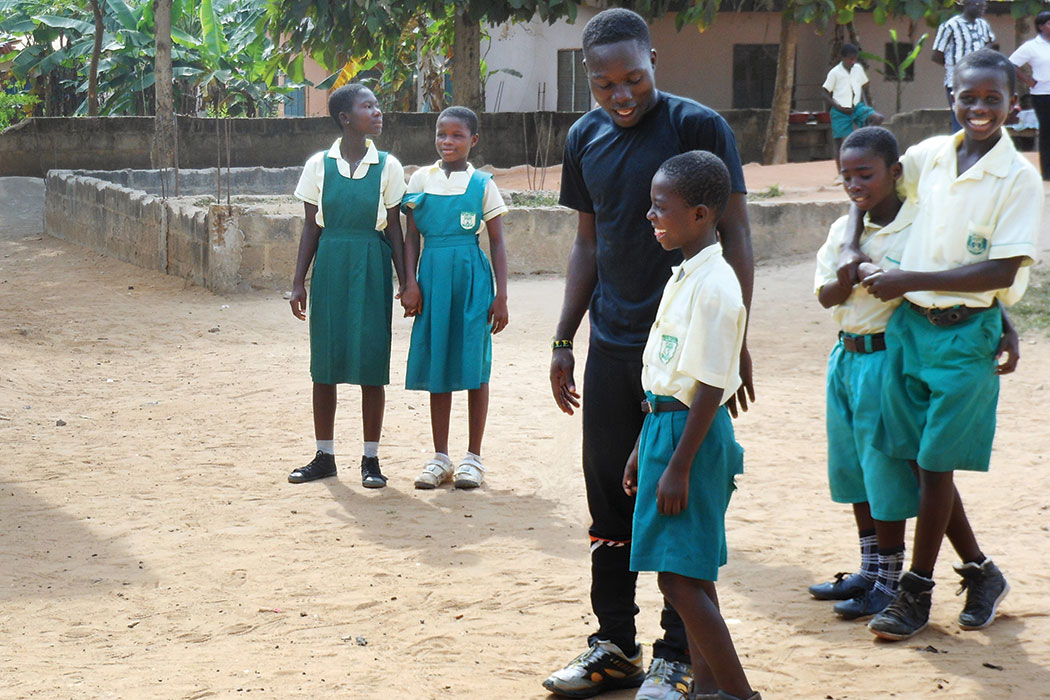
Abakam is a fishing community made up of “settlers,” non-natives who have moved to the area for work, explains Nkrumah. Often, children are sent to work and live there alone. In Nkrumah’s mind, YES Ghana provides them with the guidance they lack from family.
Perhaps the greatest tributes to the program’s effectiveness, though, are the students themselves. Lucy, a junior high student in Nkrumah’s program, writes, “I was always feeling lazy about coming to school, but the playing, the activities—it makes me happy to be in school every day.”
Paulina, a 16-year-old, noted that many of her friends have gotten pregnant. “I was afraid for me. But thanks to YES Ghana, I have learned so much about teenage pregnancy, its causes, and prevention. Now, I am very confident that I’ll make good choices.”
Doing More with YES
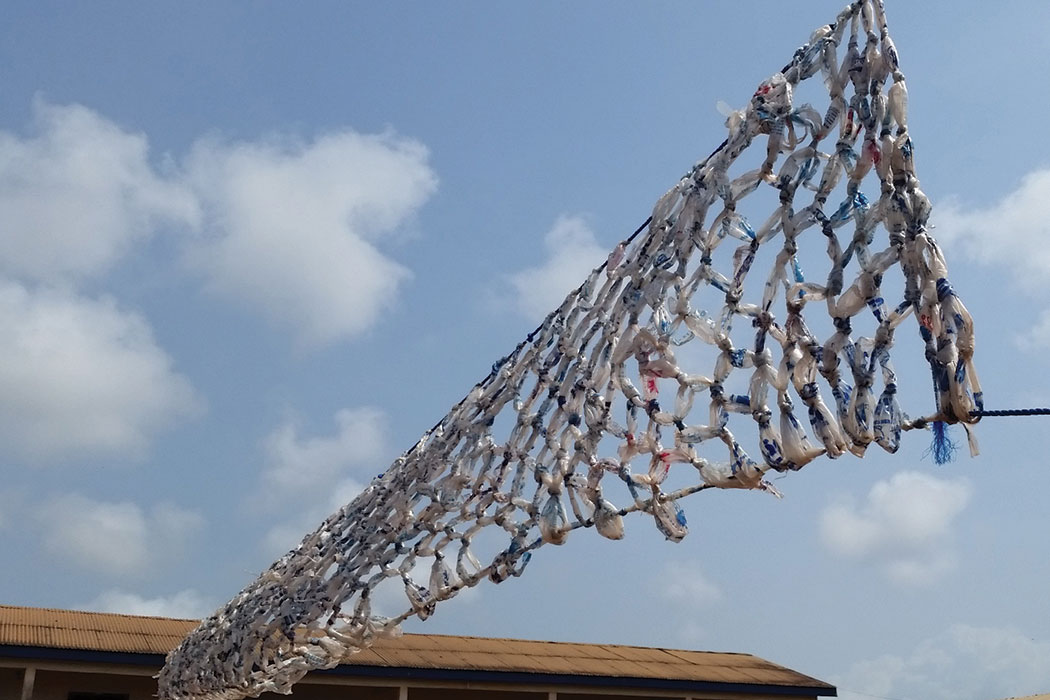
Nkrumah’s hope for YES Ghana is simple: “I know that you are already doing so much for us with this program,” he says. “I would say, ‘Do more.’ It is working. It is helping these young ones.”
As for Professor Young, she wants to expand YES Ghana to include more schools by offering training programs to additional coaches and mentors. She’d also like to fund a concrete slab for a basketball court or two, and provide additional equipment, like permanent volleyball posts. (The temporary ones get stolen if they’re left out overnight.)
To do that, Young needs people who understand how powerful a mentor can be—how the right words from someone a young person respects can change a life forever. After all, that kind of pivotal experience is worth supporting.
It’s worth saying “yes” to.
To learn more about how you can support YES Ghana, contact Natalie Kubat, Director of Development, at nkubat@indiana.edu or 812-856-8273.
This article was originally published in the spring 2015 issue of Imagine magazine.
Tags from the story
Written By
IU Foundation Staff
